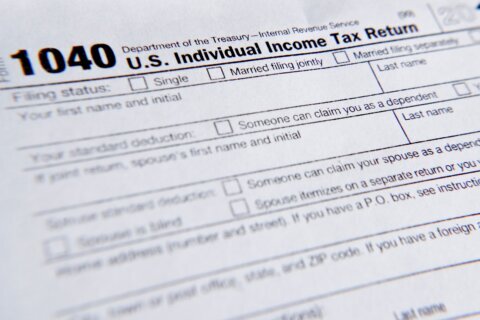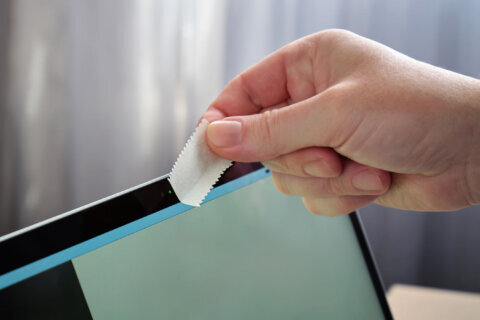Q: What are the best options for getting all the computer cables under my desk under control?
A: If tackling the tangled mess of cables under your desk is a New Year’s resolution, the key is strategic planning to know what accessories will work best.
Do the math
The first consideration is the number of power outlets you need with a special focus on ‘wall warts’ (oversized power adapters) that can block adjacent sockets.
If your existing setup is forcing you to use multiple power strips, replace them with a single unit that allocates for wall warts from companies such as Tripp Lite, Belkin and Anker.
If you have numerous items that get charged via USB cables (tablets, smartphones, smart watches, etc.), look for power strips that also include USB ports and surge protection.
Go wireless
Two items that can easily be converted to wireless are the keyboard and mouse, which is especially helpful if your computer sits on the floor under your desk. If you purchase them as a set, you’ll only need one transmitter for both devices.
This means that you’ll only need to use one USB port for both the keyboard and the mouse to go wireless.
Keeping count of the needed USB ports is also an important element of your planning.
If you have an older printer, upgrading to a wireless option will eliminate the need for the USB cable to be connected between the printer and your computer.
It can also allow you to place the printer in a more advantageous location.
Plan your cable routes
Once you’ve determined all the necessary cables, you’ll need to decide if they can follow the same or separate paths.
If your desk has grommets to pass the cables through, review the path necessary underneath, which will help you determine the best place to mount your power strip and where the computer will sit on the floor or the desk.
Mount the power strip
Since the power cables represent the biggest mess, mounting your power strip under the desk or on the wall under your desk will help hide the bulk of the cables.
Most power strips include mounting holes for screw heads, or you can use double-sided Velcro strips to place it in the least noticeable location.
You can also purchase shorter power cords that reduce the amount of cable you’ll have to manage once things are mounted.
I recommend using Velcro straps instead of zip ties to manage excess cables, which provides for easy adjustments and prevents cables from being damaged from overtightening.
Exposed cable management
Inevitably, some cables may end up being exposed, so your management options depend on the quantity and distance they need to travel.
If you have a lot of cables that need to be managed, look for raceways or cable trays that can be mounted on the underside of the desk.
Cable sleeves work well for vertical routes so cables aren’t dangling freely, and cable clips work well for smaller cables that are routed horizontally underneath surfaces.
Label before unplugging
The best way to get everything organized is to unplug and detangle everything, so if you’re nervous about reconnecting it all, label everything first.
Ken Colburn is founder and CEO of Data Doctors Computer Services. Ask any tech question on Facebook or X.
Get breaking news and daily headlines delivered to your email inbox by signing up here.
© 2025 WTOP. All Rights Reserved. This website is not intended for users located within the European Economic Area.







